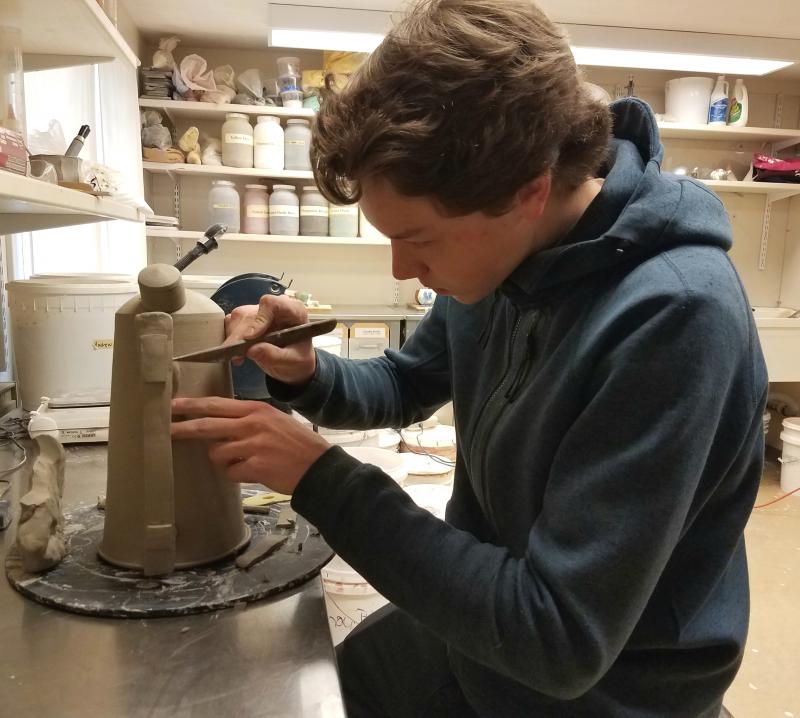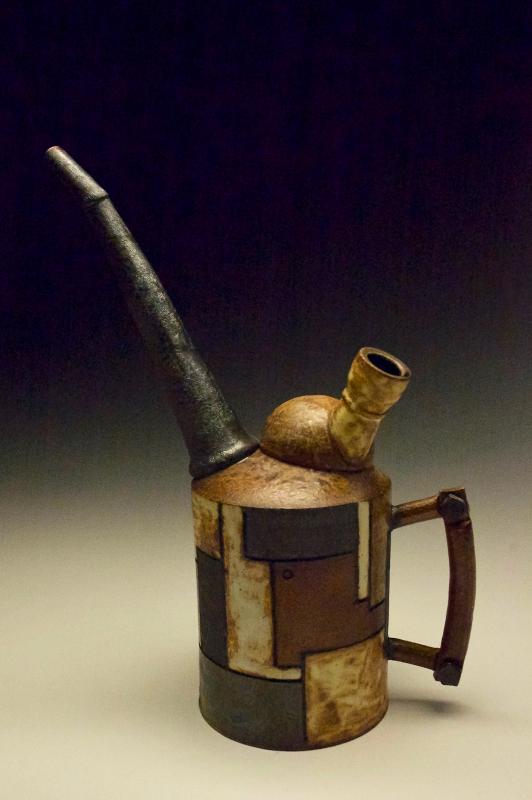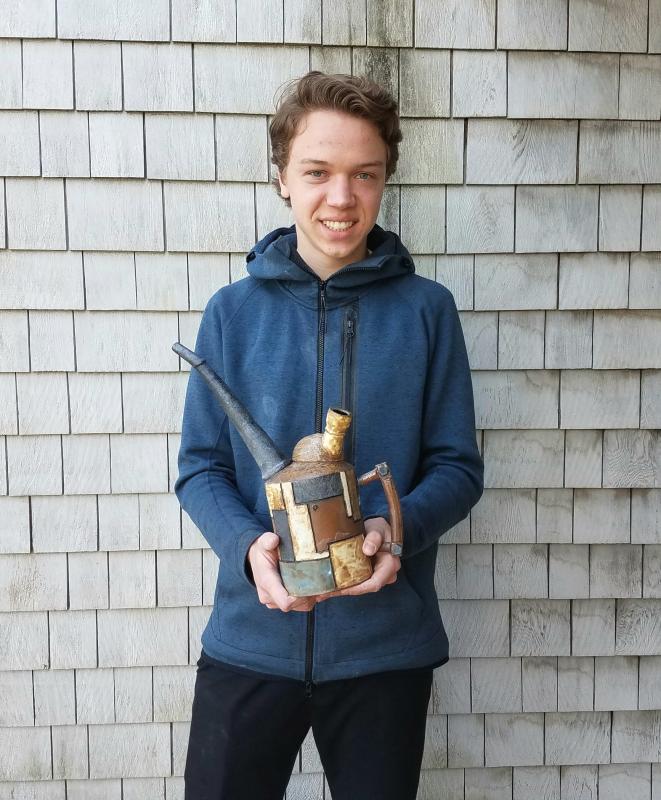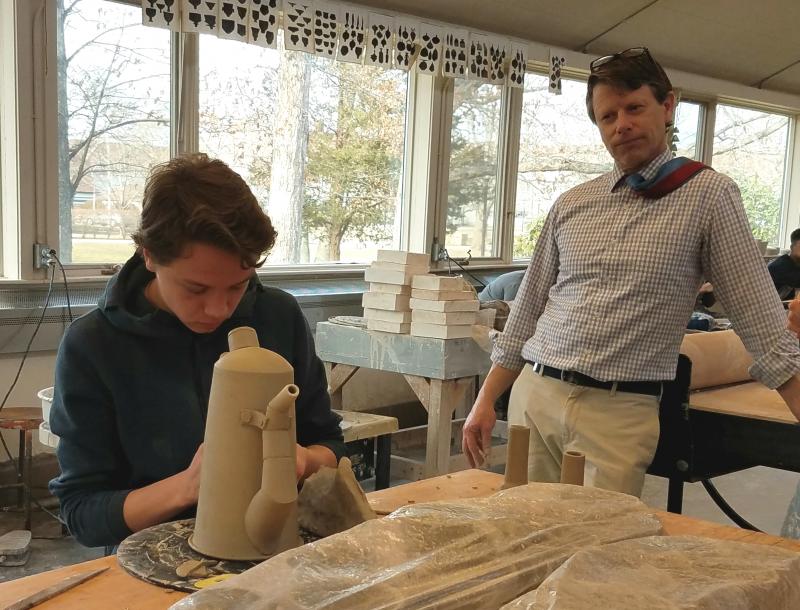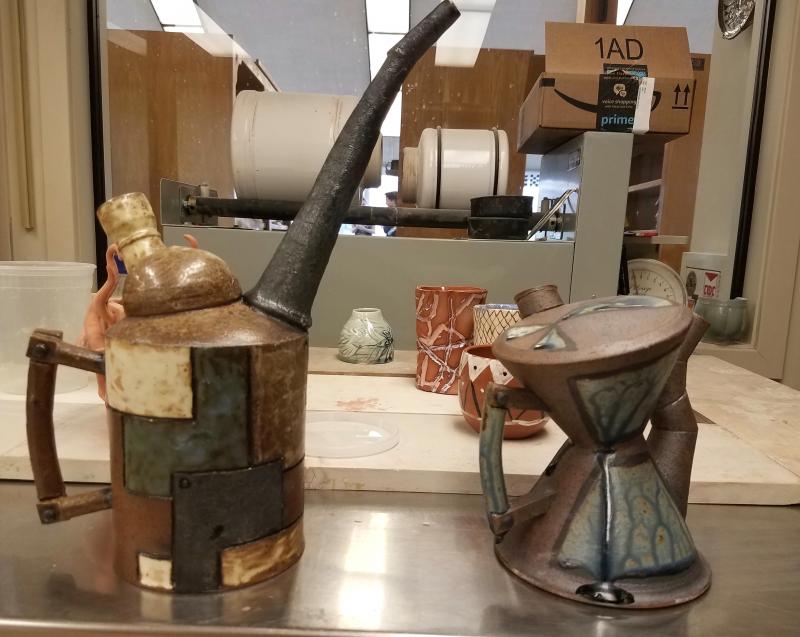Onset high school student receives national acclaim for work in ceramics
An Onset teenager is a true jack of all trades, excelling in engineering, hockey and art while seamlessly juggling extracurricular activities from his at-home pottery wheel.
After finding a way to combine these interests, Vyper LaTulippe received national recognition for his work in ceramics, earning three awards and demonstrating his ability to blend engineering with art. A 17-year-old Tabor Academy student, he recently had a ceramics piece displayed on the national stage as part of the annual conference of the National Council on Education for the Ceramic Arts in Pittsburgh, Pennsylvania.
The conference is held annually and brings together professionals from universities, colleges, museums and art galleries to view exhibitions, demonstrations and attend workshops and talks.
There were 1,300 submissions for the exhibition from students across the country from kindergarten to 12th grade, but only 150 pieces were selected for the exhibition, including an oil can created by LaTulippe.
He is in his third year of ceramics. LaTulippe stumbled into art his freshman year of high school, when he was just fulfilling an academic requirement, but his passion grew from there. He has his own pottery wheel at home and works on ceramics during and after school.
"I like that I have the freedom to make whatever I want," LaTulippe said. His favorite thing to create is pitchers and oil cans, because they combine the skills needed to make cups and bowls, but are more intricate.
The process starts with clay on a pottery wheel, and then LaTulippe creates designs off the wheel. Creating one piece takes around two weeks. His pieces showcase his love of mechanical engineering, with rustic glazes, metallic finishes and nuts and bolts crafted from clay, using old steel factories as an inspiration.
"I think of it as architecture," he said. "The pieces of the spout are like metal beams."
LaTulippe plans to study engineering in college, and he's been surprised to find that ceramics and engineering have a lot in common.
"I also use a lot of chemistry doing the glaze work, and I have to use engineering and math," LaTulippe said.
He received three awards for his piece at the conference: the artistic merit award, a Bailey Pottery cash prize and a $20,000 scholarship to Alfred University. Most scholarships go to high school seniors, he said, so he didn't even apply for one, but the scholarship he earned has him considering studying ceramics in college.
"I never planned on going to art school, I thought it was more of a hobby," LaTulippe said.
Kevin Arnfield, a visual arts faculty member at Tabor Academy and one of LaTulippe’s ceramics instructors, said LaTulippe is one of his most committed students.
"Vyper's piece showed skillful competence, careful planning and creative thought," Arnfield said. He said he suspects the judges appreciated his reference to metal, the unusual nature of the vessel he made and the "evocative, thought-provoking" piece.
Arnfield said many students who enjoy engineering and architecture also appreciate ceramics, because it involves planning and building.
"It is engineering, actually, especially when you're making utilitarian vessels," he said.
The conference in Pittsburgh was eye-opening for LaTulippe, as he met famous ceramic artists and saw a range of different styles, giving him inspiration for future pieces.
"The whole entire city opened up and there was art popping up everywhere," he said.
Though ceramics is the only art form LaTulippe does, he stays busy on Tabor Academy's soccer and hockey teams and with AP science classes.
"There aren't that many kids that have such a broad spectrum," LaTulippe acknowledged, but he believes his interests have something in common.
"They provide a lot of structure," he said. "Tabor makes it easy to fit everything into one day."
Tabor Academy offers up to eight ceramics classes each semester and has two full-time ceramics faculty members. In addition to the classes, there is an open studio after school to allow students to work on projects. Ceramics appeals to students in part because it's just fun to create things, said Arnfield, who has taught ceramics for 17 years.
"Ceramics is a very tangible art," Arnfield said. "That clicks with people."



